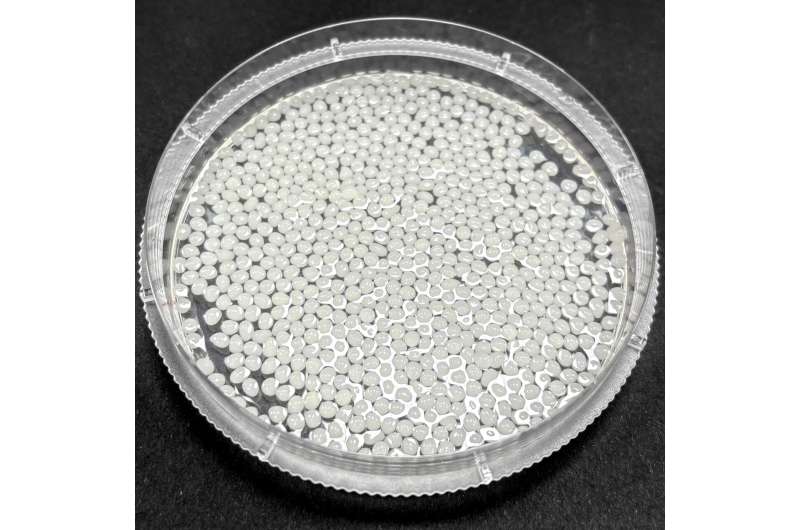Preliminary results from tests with rats fed high-fat diets show that this approach to weight loss may be safer and more accessible than surgery or pharmaceuticals.
Yue Wu, a graduate student at Sichuan University, presented her team’s results at the ACS Fall 2025 Digital Meeting. The paper is also published in the journal Cell Biomaterials.
“Losing weight can help some people prevent long-term health issues like diabetes and heart disease,” says Wu. “Our microbeads work directly in the gut to block fat absorption in a noninvasive and gentle way.”
Weight gain is caused by genetic and lifestyle factors, including eating a high-fat diet. A high-fat diet is defined by the U.S. Department of Agriculture as one where 35% or more of a person’s daily calories come from fat, as opposed to protein or carbohydrates.

